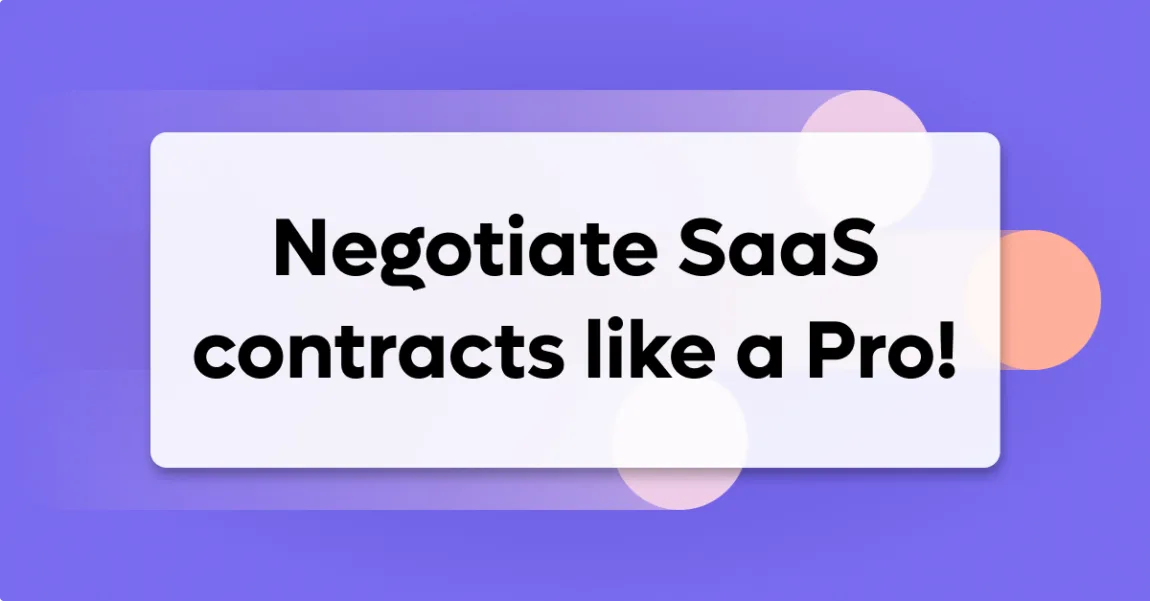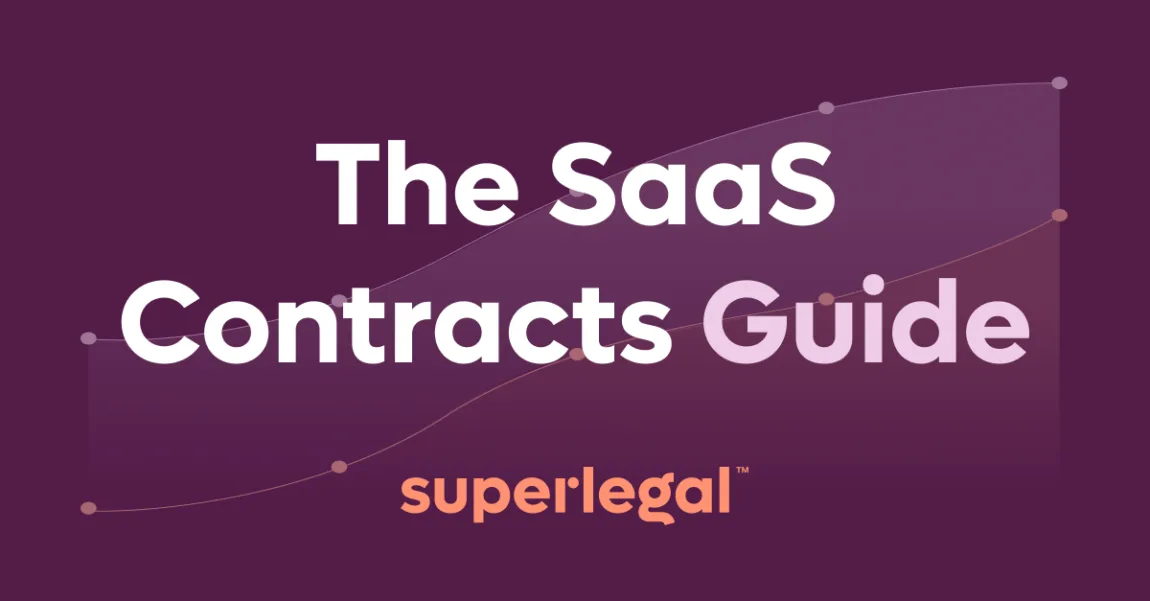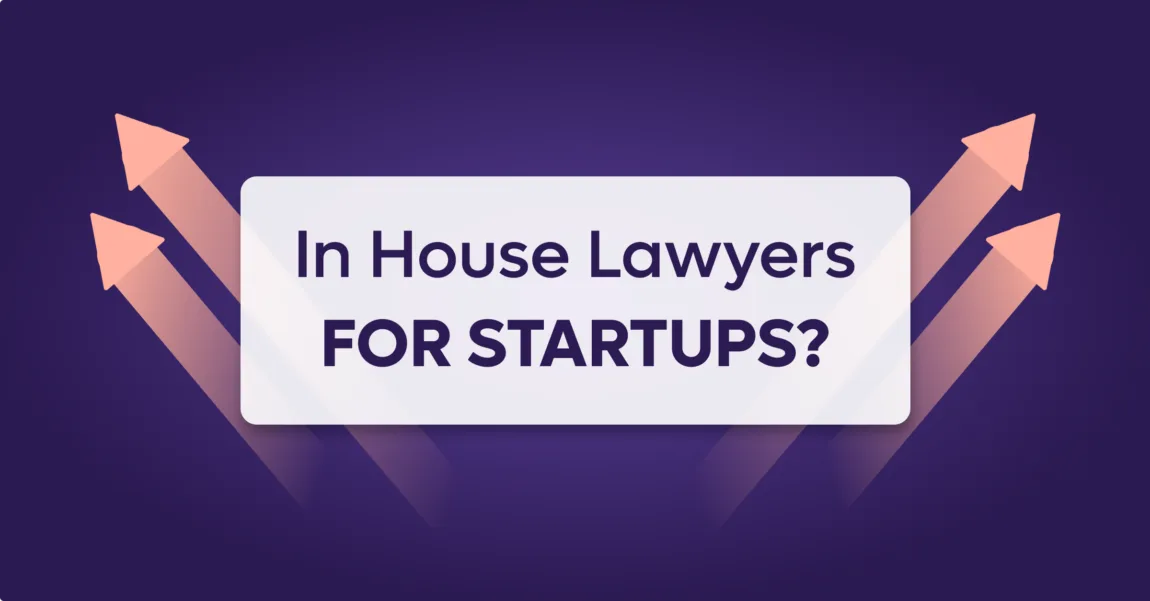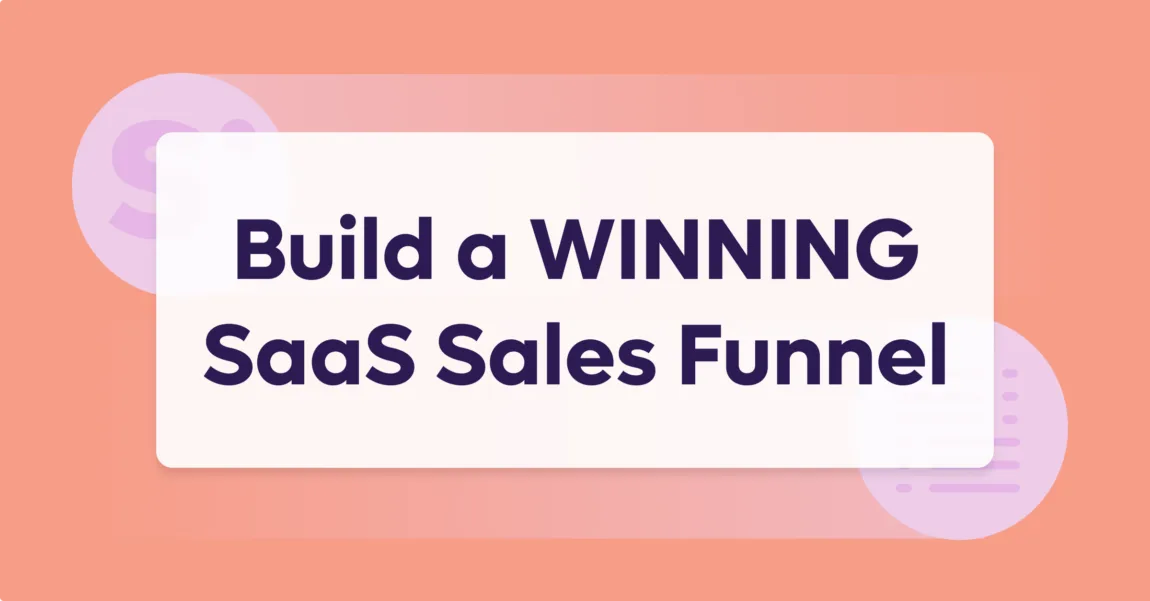So, you’re a SaaS provider. You’ve created a kickass product that resolves your ICP’s pain points. So of course, you make a sale, congratulations!
The only thing now is to sign off on the contract and close the deal, easy right?
If only it was that simple.
SaaS contracts can be complex and time consuming. While some product-led companies might use click-through, most enterprise buyers require an in-depth review process, with multiple rounds of negotiation.
The average SaaS sales cycle is 87 days according to Hubspot.
Even if you’ve perfected the best sales process for SaaS, it can still take weeks or even months to get the final sales agreement signed.
The problem is that the process isn’t built for speed.
Each side must manually review, edit and exchange red-lined contracts in seemingly endless iterations.
Each step eats up time, delaying or even killing the deal. Because in the time it takes to finalize the contract people change, budgets change and priorities change.
How to negotiate SaaS contracts
So how can you negotiate your contracts to minimize time to close?
Instead of thinking of SaaS contract negotiation as one party “wins” and the other “loses,” the best SaaS negotiations are a collaborative effort to get the deal done. Not to mention that it’s in your long term interest to ensure your customer’s needs are met from the outset.

If you want to close deals faster and reduce your risk of losing the deal, focus on aligning on the things both sides care about the most.
Bottom line: by negotiating the things both parties care about the most you can save time, reduce the number of rounds of negotiation and CLOSE THAT DEAL!
Top 5 legal issues in SaaS contracts and our Pro Tips
Superlegal’s AI has been able to review over 10,000 SaaS sales contracts, and the results are in!
We’ve created a list of the top 5 most important legal issues in SaaS contracts according to real life data.
This data provides a deep insight into which areas are negotiated the most in SaaS contracts. We highlight what these terms are about, why they’re important and give you our pro tips for optimizing your contracts.
1. Warranty
A warranty is a promise you make about how well your product works. Some B2B SaaS products like Salesforce or Google’s Firebase offer no warranties at all. Whilst other SaaS providers offer some degree of warranty because their customers demand them.
Some SaaS agreements go as far as to include a Service Level Agreement (SLA), which lists more specific promises and consequences if you fail to deliver on things like access, service level and response times.
Pro tip: Try to avoid offering SLAs unless you really need it to land an important B2B customer. Negotiating SLAs can seriously draw out the negotiation process when in reality, customers may agree to more general promises about the product’s performance anyway.
2. Limitation of liability
Most B2B SaaS companies require some sort of cap on the liability they will incur if something goes wrong. Without these limits, companies would need to price their products much higher to guard against the greater risk of uncapped liability.
Picture the scenario: as a SaaS provider, your starting position is a cap equal to several months’ subscription fees. Your customer then requests an increase to one year’s fees. You end up somewhere in the middle, depending on how you both push.
But as you can imagine, this can waste serious time!
Pro tip: Resist the urge to push your customers for a lower liability cap. In the small chance of being sued by your customer, you will end up negotiating a settlement or simply providing a refund anyway (given that 95% of all lawsuits are dismissed or settled before trial).
This makes the contractual liability cap entirely irrelevant, and the time spent negotiating it completely wasted.
3. Indemnity
Indemnity clauses are promises that you make to compensate your customer from the risk of harm, liability or loss – a lot like insurance.
Given such a broad range of potential risks, the question remains – what should be indemnified?
You may think that it depends on your service, how much is being paid, and the leverage each party has in the negotiation. But thinking this way will cost you time, and potentially even cost you the deal!
Pro tip: Resist the urge to over-indemnify and instead, focus on creating a more balanced agreement for both sides.

4. Termination
In addition to establishing when and how both sides can terminate the contract, parties will often negotiate what happens when the customer terminates ‘for convenience’, i.e. for reasons other than a breach of the contract.
Such terms could cover things like early termination fees to offset costs incurred and post termination obligations on the customer.
Pro tip: Keep it simple. Don’t get lost in complicated clauses regarding early termination fees and post termination obligations. Simply ensure that the customer’s obligation to pay survives this kind of termination.
5. Intellectual property rights
When a SaaS buyer purchases a SaaS product they are licensing the IP rights from the SaaS vendor to the software. One of the biggest and most expensive risks faced by your customers is that the SaaS product infringes on a third party’s IP, resulting in a potential lawsuit against them.
It’s extremely important to your customers that the agreement includes a third-party intellectual property indemnification clause, where you agree to take on any liability related to any third-party claim against them.
Pro tip: Ensure that you take on this third-party liability to align with your customer’s expectations from the get-go. Of course, you must always retain your IP rights in the software, services, and systems you provide.
A Better Option to Negotiate SaaS Contracts
As we’ve established, your company’s success is directly related to how quickly and effectively you negotiate your sales contracts.

But incorporating the right terms to minimize negotiation time whilst still protecting your commercial needs can be challenging!
We know how important it is to your business to negotiate your SaaS contracts like a pro – so we set out to build a contract review and negotiation solution optimized for closing deals fast!
Our mission was to find the right balance between artificial intelligence and human intelligence.
Our powerful contract review software quickly and accurately identifies and revises the clauses that actually matter. With the help of our commercial lawyers, we’ll guarantee you negotiate your contracts to close.
With Superlegal you will reduce time to close by up to 73%. Wouldn’t that be nice?
To discover how we can help you negotiate your SaaS contracts, try Superlegal for free today.








By entering your email, you agree to our Terms & Conditions and Privacy Policy.